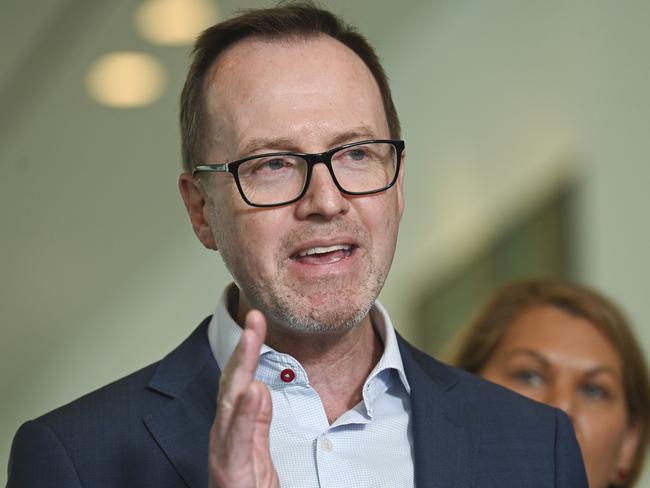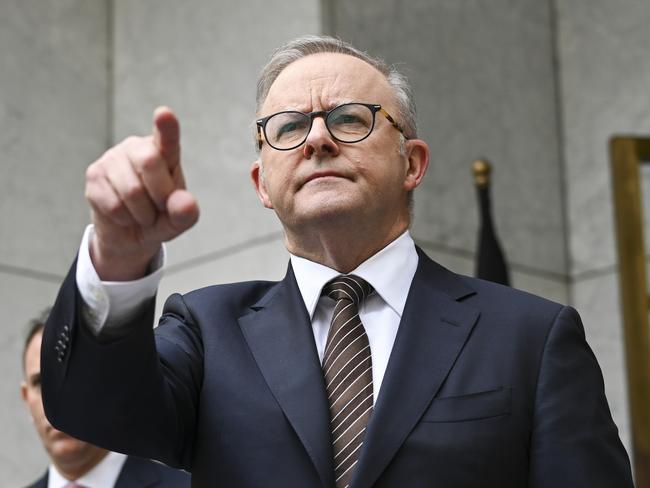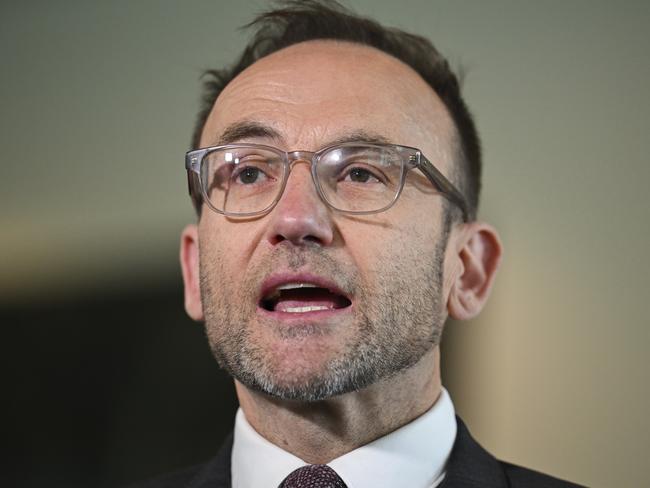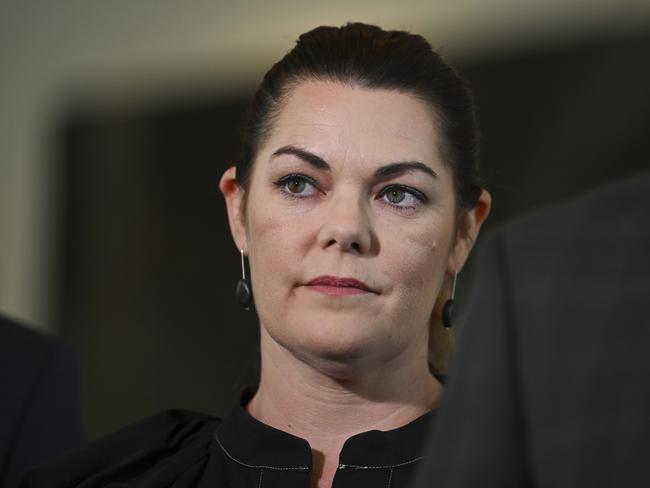James Campbell: Greens have structural problems accommodating differences of opinion
Obstructionism combined with the full scale embrace of Palestinian activism, including a flirtation with its violent elements, is a giant turn-off to affluent middle-aged public servants in the inner cities.
Opinion
Don't miss out on the headlines from Opinion. Followed categories will be added to My News.
Greens Senator David Shoebridge was on Sky on Sunday complaining bitterly that under Labor’s “brutal” new immigration laws more than 80,000 people could be deported.
We should be so lucky.
And anyhow, these laws can only in the most technical sense be described as the ALP’s.
With six months to go until the next election we’ve reached that stage in the life of a Labor government when the Immigration Minister leaves his Liberal counterpart alone in a room with a pen and tells him to get on with it.
As part of this Australian tradition it’s customary for the Coalition to insert one or two more ‘liberal’ provisions into legislation that Labor wouldn’t dream of proposing if it wasn’t terrified of a scare campaign at the upcoming election.
So it was last week that the Opposition Home Affairs spokesman James Paterson showed us he’s not above a bit of trolling by announcing – solemnly – that the Coalition had forced the government to insert a sunset date on the power to ban all visa applications from a particular country and a requirement immigration ministers give a list of reasons for such a ban.
Shoebridge’s whine about the “completely supine, surrendering Labor government” would carry more weight if after two-and-a-half years’ bloody-minded obstruction – sorry, principled criticism – the Greens hadn’t out-of-the-blue last week suddenly joined with the government to pass dozens of senate bills.

But while it was sudden, the most surprising thing about the shift from wrecker to junior coalition partner, was it showed a survival instinct that has been missing for most of this term.
Some might say of course that a thumping at the Queensland state election followed by back-to-back poor results in the NSW and Victorian local government election meant Adam Bandt’s band had no choice but to change direction.
This is not an easy thing for a party which has structural problems accommodating differences of opinion to do.
That’s because if you believe, as all Greens do, you are a good person who is doing good things for the right reasons, then, it must follow that those people who disagree with you, can only be doing so because they are bad people.

Ever since Albo was elected, the Greens have been steering for the rocks with the engine at full throttle in a way that has surprised Labor observers.
In the first year-and-a-bit their problem was as one minister observed this week, principally one of “tone”.
He meant that most Left-wingers, whether they voted for Albanese or not, still wished the newly-elected Labor government well.
In other words, the right note for the Greens to strike was one of constructive encouragement reserving the right to be “disappointed” later.
“They’re at their most dangerous when they’re standing one step to the Left of us,” he said.
But instead of going for what might be called the “Labor Plus” option, Greens MPs seemed to have convinced themselves their voters hate the ALP like their activist base does.
So desperate were they to deny Albo any sort of win, they basically did nothing to help the Voice.

I’m no expert on Green internals but from the outside it looked as though dialling up the rhetoric to eleven was being driven by the arrival of a younger more radical element who appeared to be very much in the saddle, even before Gaza came along.
As we can now see from the Queensland, NSW and Victorian election results, obstructionism combined with the full scale embrace of Palestinian activism, including a flirtation with its violent elements, is a giant turn-off to affluent middle-aged public servants in the inner cities.
That the Greens in Queensland were up against a well-resourced campaign from the Jewish community urging voters to put them last didn’t help either.
From his social media it’s clear Bandt worked this out straight away.
In the year after October 7, he tweeted about “Gaza,” “Palestine,” “Israel,” and “Netanyahu” 203 times whereas “cost of living” got only 24, “housing” 55 and “rent” 40.

Since the Queensland state election, Bandt has halved his mentions of the conflict, indeed as of last week he hadn’t tweeted about “Palestine” once.
Between the backlash against the full embrace of Pali cosplay and Labor preparing to run a campaign arguing, as a senior Labor official put it “we would have done a lot more if you hadn’t been running the table for Peter Dutton”, it’s clearly time for the Greens to reverse ferret.
Which explains no doubt why after being almost invisible for two-and-half years, Sarah Hanson-Young, the leader of what might be considered the Greens’ Australian Democrat tendency, has been everywhere.
With Advance coming after the Greens – a TV campaign launches this week – the Greens know if they don’t smarten themselves up they could share the fate of the once mighty “Chippocrats”.
Originally published as James Campbell: Greens have structural problems accommodating differences of opinion



